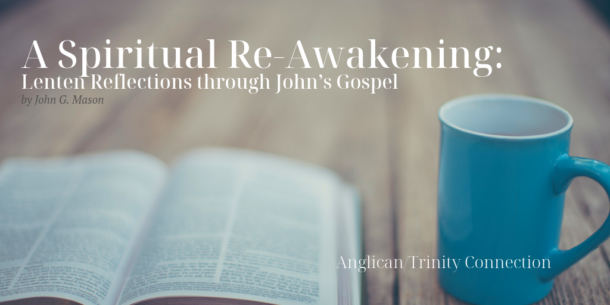Day 7 – Word on Wednesday (March 13, 2019)
The emotional pain of broken relationships, loneliness and despair, is experienced by millions around us. This is nothing new. Indeed, we see it revealed in a noonday conversation between Jesus and a woman at a well outside a village in ancient Samaria. Because of the mess of her personal life she had gone in the heat of the day to fill her water jar in order to avoid meeting anyone. The empty jar symbolized her empty life. As so many do today, she searched for meaning in relationships, but had not found one that truly satisfied. The man she met at the well that day showed her where her need could be met.
Read
John 4:16-26
16 Jesus said to her, “Go, call your husband, and come back.” 17 The woman answered him, “I have no husband.” Jesus said to her, “You are right in saying, ‘I have no husband’; 18 for you have had five husbands, and the one you have now is not your husband. What you have said is true!” 19 The woman said to him, “Sir, I see that you are a prophet. 20 Our ancestors worshiped on this mountain, but you say that the place where people must worship is in Jerusalem.” 21 Jesus said to her, “Woman, believe me, the hour is coming when you will worship the Father neither on this mountain nor in Jerusalem. 22 You worship what you do not know; we worship what we know, for salvation is from the Jews. 23 But the hour is coming, and is now here, when the true worshipers will worship the Father in spirit and truth, for the Father seeks such as these to worship him. 24 God is spirit, and those who worship him must worship in spirit and truth.” 25 The woman said to him, “I know that Messiah is coming” (who is called Christ). “When he comes, he will proclaim all things to us.” 26 Jesus said to her, “I am he, the one who is speaking to you.”
Reflect
The woman suddenly realized that Jesus, whom she had taken for a Jewish liberal, was nothing less than a prophet with transcendent knowledge of her sin. She knew enough about religion to realize that he was challenging her to sort out her relationship with God. The big question was where to do this – at the temple in Jerusalem, or in a house of worship in Samaria?
In reply, Jesus pointed out the unique religious privilege of the Jewish people; God’s plan of salvation would be worked out through them. Astonishingly, he went even further. A new age was dawning where worship would be a matter of spirit and truth (John 4:23-24). It seems this is what the woman had been waiting for. She knew the promise that God’s Messiah would come, and that he would reveal the truth about God, about life, and our relationship with God.
Jesus’ words are breath-taking: “I am he, the one who is speaking to you”(4:26); literally, ‘I who am speaking to you, I am.’ Twelve hundred years before this, God had told Moses His name. At the time of the burning bush (Exodus 3), he said, “I am that I am that is my name”.
Jesus was not only claiming to be the Messiah, but also claimed identity with God. So the eternal life he was talking about, the thirst-quenching water he promised that day, would not just satisfy her felt needs, but would also make her a true friend of God. John tells us that, leaving her water jar empty, the woman ran back to the city with her news. It was a word from Jesus to the woman of Samaria at the well that day. It is a word from him to us today – whoever we are, and wherever we are – to make time to learn from him. For he is the Messiah.
Prayer
Almighty God, you have given us your only Son to take our nature upon him and as at this time to be borne of a pure virgin. Grant that we, being born again and made your children by adoption and grace, may daily be renewed by your Holy Spirit, through our Lord Jesus Christ, who lives and reigns with you and the Holy Spirit, one God, for ever and ever. Amen. (1662 BCP, Christmas Day)
Daily Reading Plan
Read again John 4:16-26. What does this conversation tell us?



